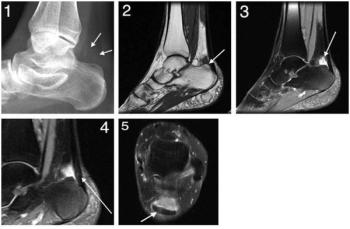
A 51-year-old woman presented to the clinic complaining of left heel pain.Tenderness and soft tissue swelling were observed. MRI reveals Haglund's deformity.


A 51-year-old woman presented to the clinic complaining of left heel pain.Tenderness and soft tissue swelling were observed. MRI reveals Haglund's deformity.

Contrast-enhanced FLAIR is more sensitive than other MRI techniques due to T2 prolongation and T1 shortening.
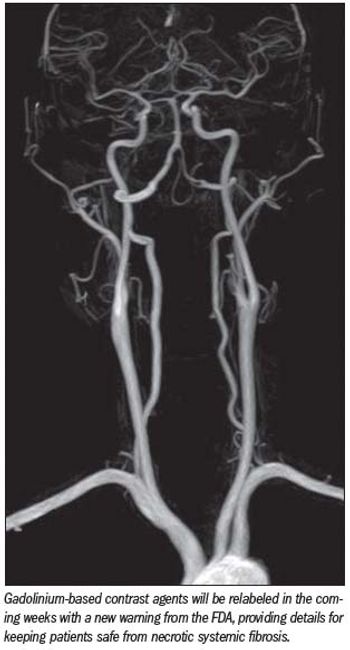
Current labeling already warns about the risks of gadolinium for patients with impaired kidney function.

From 1998 to 2007, the use of CT or MRI scans in emergency departments for injury-related conditions increased about three-fold without a similar increase in the prevalence of the diagnosis of certain life-threatening trauma-related conditions, according to a study in the October 6 issue of The Journal of the American Medical Association.

An insulin pump allows the replacement of slow-acting insulin for basal needs with a continuous infusion of rapid-acting insulin. By using an insulin pump, a patient can typically match the dosage of insulin to lifestyle and activities, rather than adjusting those to the body’s response to insulin injections. The advantages of using an insulin pump include the fact that an insulin pump replaces the need for periodic injections by delivering rapid-acting insulin continuously throughout the day via a catheter. It greatly simplifies the management of diabetes.

Magnetic resonance imaging is an established and important modality for the evaluation, assessment, and management of liver disease.

What set MRI on the path to where it is today was this modality’s ability to reveal, in strikingly realistic fashion, the mushy insides of our bodies. Whereas x-rays and CT scans showed our bony interior in stark relief, MRI excelled at showing our softer selves. That may be why it seemed so natural and fitting when fruits were used to see whether MRI scanners were working correctly. But I had never seen such scans as art, not until Andy Ellison got hold of them.

The very small may one day inherit the imaging world. Pioneers in nanoparticles are working toward that end, crafting imaging agents to hasten the future of MRI. But lately imaging alone just hasn’t been enough to excite me. Nor has it been enough that these nano agents are about 1/10,000th the diameter of the diminishing hairs on my head.

Good news radiologists! There’s a new place to set up that MRI machine: the guidance counselor’s office. Researchers are starting to use MRI to document an individual’s ability to perform on vocational guidance tests.

Every so often you come across an idea that has so much merit you can’t imagine why somebody hadn’t come up with it before. Such is the case with hospital gowns matched to a patient’s skin color. Although sky blue and forest green might be stunning on the right patient, it is hard to imagine either one helping docs spot signs of diseases that can be found in skin color changes.
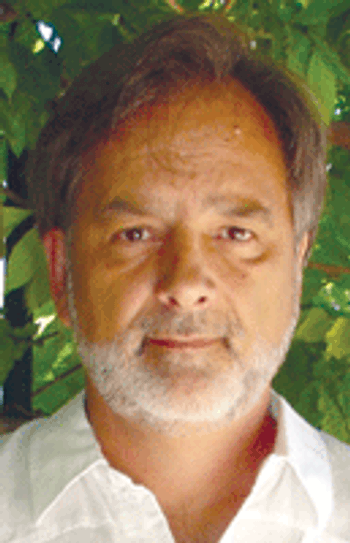
Thirty years ago, I counted 12 MRI machines worldwide. Once the total had passed 25,000, I gave up counting.
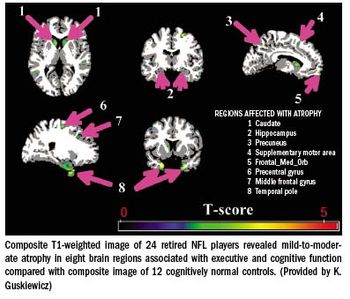
A growing body of data is linking sportsrelated concussions to brain damage associated with cognitive impairment.

Cardiovascular MR (CMR) has evolved rapidly over the past decade, with the results feeding into a broad spectrum of clinical and research applications.

Thirty years ago, I counted 12 MRI machines worldwide. Once the total had passed 25,000, I gave up counting.
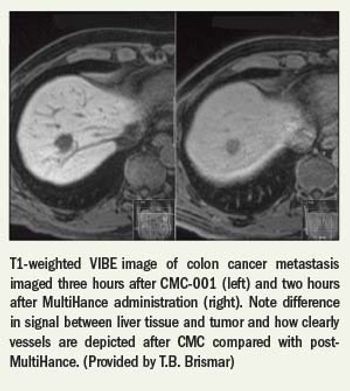
CMC-001, an investigational MRI liver contrast medium, may be at least a partial answer to reducing the long imaging times.
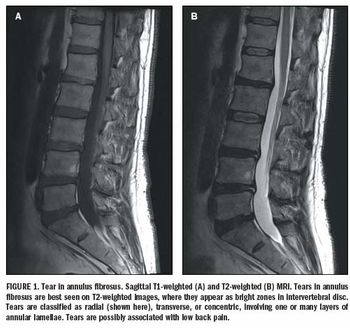
Low back pain is extremely common in Western society.1 It is second only to upper respiratory illness as a symptomrelated reason for visits to the doctor

The lungs have quite literally been a black hole for MRI for many years. Now advances in hardware and imaging techniques are helping lung MRI move into the clinical arena.
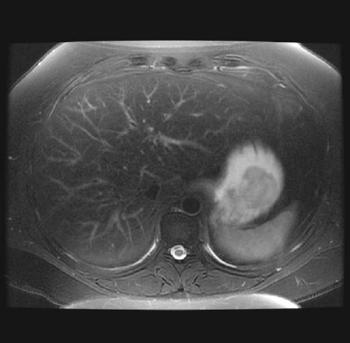
Physicians have used palpation regularly as a diagnostic technique since the days of the ancient Greeks. Up to now, the potential value of this method has been explored in the imaging field only by ultrasound research teams, but at this year’s ECR technical exhibition, delegates can see for themselves how the same principles may be combined with MRI to improve diagnosis in patients with liver disease.
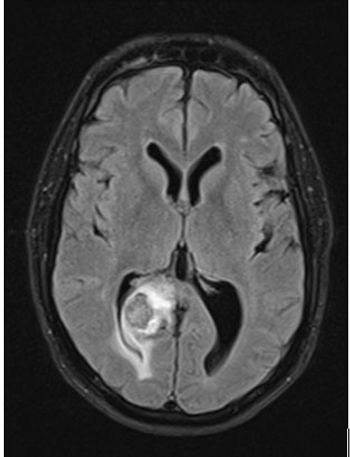
MR developments over recent years have allowed researchers to explore water molecule motion between cells using diffusion-weighted imaging to indirectly measure cellular density within a tissue. This has provided a new and continuously evolving tool in oncologic imaging for lesion detection, characterisation, and therapy assessment.

As Diagnostic Imaging previously mentioned, most women at high risk for breast cancer come in for their breast MRI. However, claustrophobia and reluctant patients still exist. Below breast imagers offer their tips.
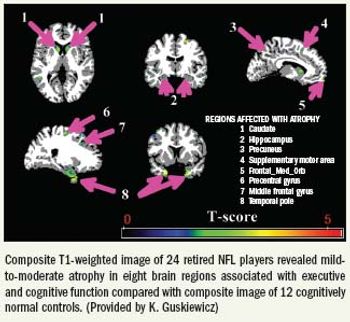
The brains of 24 retired U.S. National Football League players with known cognitive impairment show signs of damaging atrophy, according to advanced MRI studies described at the 2009 RSNA annual meeting.

Recently, thousands of European radiologists have received an e-mail with this rather alarmist heading: “EU directive still threatens MRI.” Another e-mail doing the rounds has an equally sensational title: “No more MRI in Europe?”

Knee osteoarthritis progression can be predicted by MRI findings of medial collateral ligament edema, bone marrow lesions, and being female, according to a study presented at the RSNA meeting.

Recent news coverage makes it seem as if women at high risk for breast cancer are refusing breast MRI screening left and right. That’s simply not the case, according to several experts.

According to an article in the January 2010 issue of Radiology women with elevated risk of breast cancer are likely to refuse an MRI -- even when it won't cost them anything.